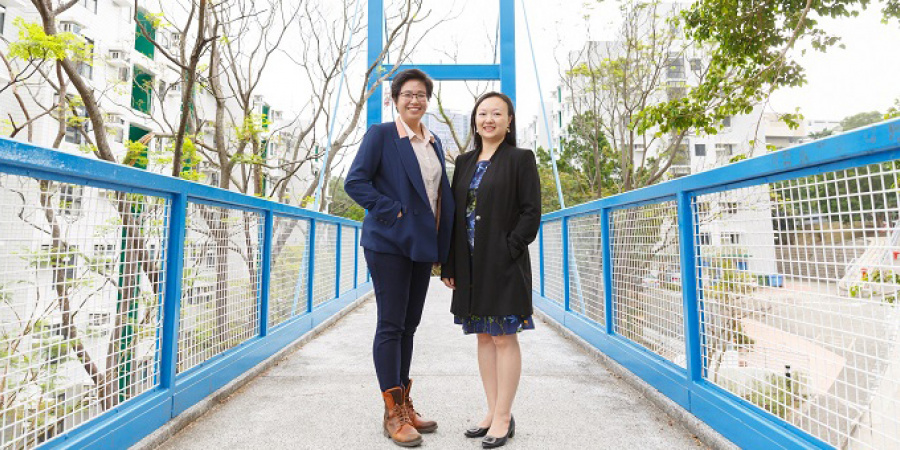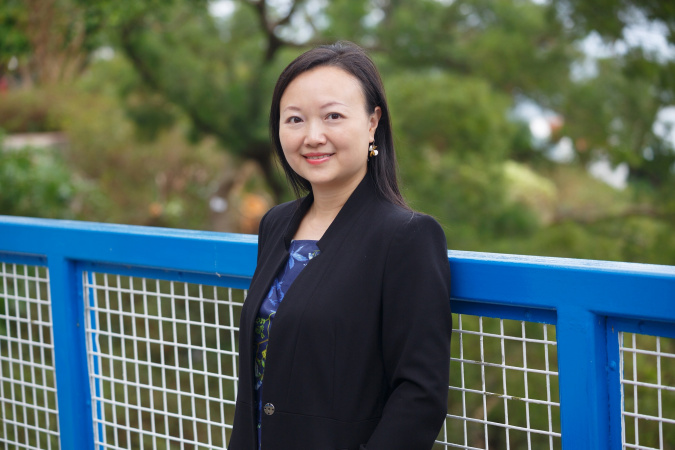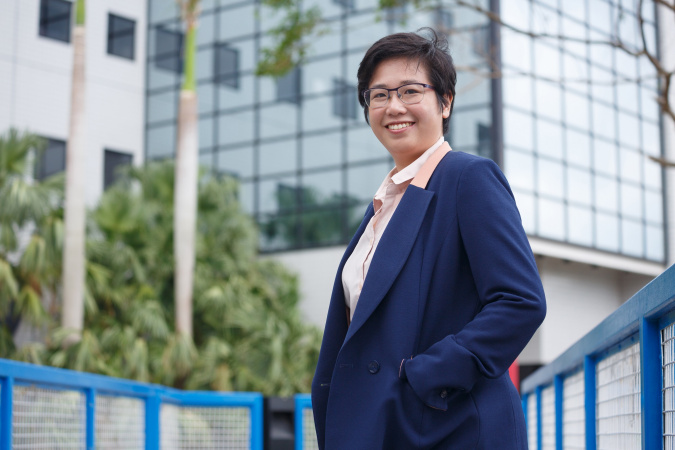Trailblazing Civil Engineering Alumnae Break the Mold in Male-Dominated Field
Two Civil and Environmental Engineering alumnae refl ect on the joys of a career that literally builds the way ahead for the world
"When I played with Lego as a child, I always loved to see how my building would grow, from the first brick up,” recalled Ir. Jenny YEUNG (1995 BEng in Civil and Structural Engineering), the first and only female student in the founding undergraduate cohort of the School of Engineering’s now Department of Civil and Environmental Engineering.
Jenny believes such interest is part of her DNA – her mother trained as a civil engineer in Mainland China but didn’t practice – and the field to be completely in line with her own dreams. “On the one hand, it matched my own mission of helping people better adapt to their natural environment. On the other hand, I wanted to challenge the traditional perception that the subject was not suited to women.”
Challenged it she has, going on to become the sole woman to date to have attained the post of Chief Geotechnical Engineer in the Geotechnical Engineering Office of the Hong Kong government’s Civil Engineering and Development Department. When she started her career in the government in the mid-1990s, there were not many female engineers in the field and she was the first female geotechnical engineering graduate in her office. However, “if you don’t think you are different, there won’t be a difference,” she said.
While she had not initially planned to focus on geotechnical engineering, the field has proved highly fulfilling. If people in Hong Kong today can seldom spot dangerous landslides in the city’s highly urbanized hilly terrain, it is due to the tremendous efforts that the government has made over the years to enhance slope safety and mitigate hazards, she noted.
Jenny, who was named Trainee of the Year in 1997 and Young Engineer of the Year in 2006 by the Hong Kong Institution of Engineers (HKIE), is no longer on the frontline. Then, she might fly by helicopters to inspect landslide sites and advise on measures to take when emergency situations did occur, such as the massive downpour in the summer of 2005 that caused more than 100 landslides. Now, she oversees strategic planning on slope safety policy and public education for the city as a whole.
As an HKIE council member and elected fellow, Jenny has also taken up responsibility for promoting the profession to schools, and in particular, girls. Even today, less than 30% of engineers overall in Hong Kong are women, she said.
When giving career talks in schools, she likes to share one of her proudest experiences as an engineer: being part of the construction team of the city’s 1,177-meter cable-stayed Ting Kau Bridge when she was still a trainee. She said, “It was really unforgettable to have a chance to be involved in this big infrastructure project, which took the combined endeavor of so many engineers, professionals, and workers to complete. Every time I drive on the bridge, I tell my son I was part of the team that built the bridge, and he proudly passes on the message to his friends.”
By the time Dr. Gigi SUEN (2006 BEng in Civil and Structural Engineering, 2012 PhD in Civil Engineering) joined the department in the 2000s, around 13% of the undergraduate students were women (increasing to 20% by 2018).
With mathematics being her favorite subject, and Lego once again being a much-loved childhood activity, she decided at an early age that she would pursue civil engineering as her major. After completing a PhD, she initially remained at the Hong Kong University of Science and Technology (HKUST) as a researcher. However, after deciding to gain practical construction experience, she moved on to a job with JMK Consulting Engineers Limited, a Hong Kong firm, in 2013.
The opportunity to shape the landscape soon appeared when Gigi became part of a structural engineering team at JMK, undertaking a variety of building projects. As work got underway, she would go on site, climbing each new floor to oversee every step of the process. “It felt amazing to see your design become a real building.” She recalled that one residential development project was even featured on a property-related TV show after completion, due to its innovative design. “I was so proud,” she said.
Along with commercial buildings, Gigi has also worked on conservation and revitalization projects, such as the Former Fanling Magistracy, a Grade 3 historic building, and Tung Lin Kok Yuen, a declared monument, in Happy Valley. She said, “It’s great to be able to understand the history of a particular old building, think deeply about how to conserve it, as well as make it meet the needs of today’s world.”
Gigi is confident that there is a great deal more for her to explore in the engineering field. And with her passion for her work, she is always happy to face challenges and manages to formulate solutions. “You don’t care about working overtime or struggling to hit a project deadline when you fall in love with your job,” she said.
Both Jenny and Gigi said they were influenced in their choice of HKUST by the world-class professors at the University and the beautiful campus. Jenny’s advice to the current generation of School of Engineering students? Be confident and proud of your status as HKUST graduates. Meanwhile, Gigi said, “Explore what you love most, and you will succeed.”
This story was originally published on the SENG In Focus magazine (Spring 2019 edition, issue 30, P.30-31).



